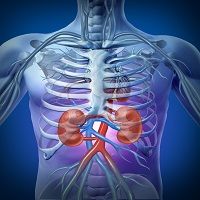Article
Review Suggests Remedies for Clinical Challenges of Lupus Nephritis
Author(s):
A recent review looked at the underlying reasons for the care challenges still facing rheumatologists in treating lupus nephritis (LN). Among those, the review looks at how to better predict individual risk for LN in a patient with systemic lupus erythematosus patient; identify optimal therapy for LN patients, and how to monitor immunologic activity for signs of persistent kidney damage.

A review in Clinical Kidney Journal provides a thorough overview of lupus nephritis (LN), including the underlying reasons for the care challenges still facing rheumatologists in treating the condition. Among those, the review looks at how to better predict individual risk for LN in a patient with systemic lupus erythematosus (SLE) patient; identify optimal therapy for LN patients, and how to monitor immunologic activity for signs of persistent kidney damage.
As the review authors note, “Untreated LN puts mostly young women at risk for chronic kidney disease (CKD) and end-stage renal disease (ESRD), which implies significant cardiovascular mortality. Current treatments of LN are associated with serious short- and long-term toxicities.”
The review goes into some detail about the likelihood that patients with SLE will develop LN, including some recent genome-wide association studies that have investigated some common genetic variants that may make progression to LN more likely. “For example,” the study authors note, “patients with gene variants that lead to a ‘weakening’ of the glomerular filtration barrier may develop proteinuria more easily than patients with a wild-type glomerular basement membrane…The majority of patients who develop LN likely have an accumulation of several genetic variants, each one imparting only a weak contribution to the overall phenotype.” But it is not feasible with what is currently known to fully and accurately predict which variants are most likely to lead to advancement of LN. The study authors suggest that future research will find clearer clinical and histopathologic predictors.
The review also touches on pharmacologic treatment for LN and its current challenges. Among them is the fact that the promise of personalized medicine is not yet available for SLE patients. “Current guidelines do not address pharmacogenetic differences in individual patients and whether testing for variants in drug metabolism can help to choose the most effective and the best tolerated drug dose for a given patient,” the review explains.
Further, clinical trials investigating the safety and effectiveness of pharmacologic treatment can use different criteria to assess short-term renal responses. These outcomes characterize patients as complete renal responders (CRR), partial renal responders (PRR) or non-responders (NR) usually after 6 to 12 months of treatment. “Importantly, there is no uniform definition of CRR, PRR or NR, nor long-term validation of these criteria. Furthermore, small variations in the criteria for these end points may profoundly affect the interpretation of a trial's success or failure,” the researchers note. Lingering questions also surround when maintenance immunosuppression can be stopped and the short- and long-term toxicities of current therapies, including immunosuppressants and steroids.
“Examining genetic variants in drug metabolism can help to predict the efficacy or toxicity of certain drugs and to select the best drug for individual patients, a personalized medicine approach not yet incorporated by RCTs and their related evidence-based guidelines,” the study authors conclude. “We suggest prioritizing study end points that relate better to the mode of action of immunosuppressive drugs in proof-of-concept trials, i.e. biomarkers of autoimmunity and repeat kidney biopsy to first demonstrate drug efficacy on the underlying systemic disorder and immune complex disease.”




